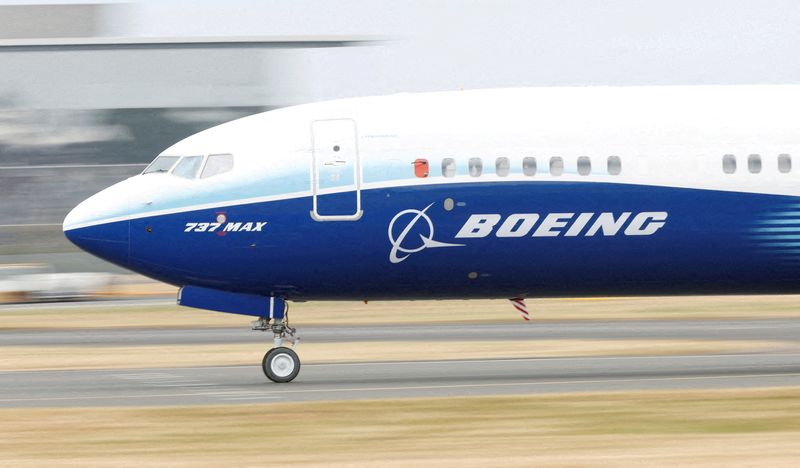Investing.com’s stocks of the week
By David Shepardson
(Reuters) -Relatives of people killed in two Boeing (NYSE:BA) 737 MAX crashes on Thursday appealed a U.S. judge's rejection of their bid to prosecute the planemaker by reopening or dismissing Boeing's January 2021 deferred prosecution agreement.
The U.S. Justice Department agreement gave Boeing immunity from criminal prosecution over fraud conspiracy charges related to the plane's flawed design. In return, Boeing has to pay $2.5 billion in fines and compensation to the government, airlines and a crash-victim fund.
U.S. District Judge Reed O'Connor in Texas ruled he did not have legal authority to grant the relatives' requests despite what he called "Boeing’s egregious criminal conduct."
Boeing declined to comment.
"The families now come to this court to see that justice is done," they said in a filing with the Fifth Circuit Court of Appeals arguing the Justice Department "misled the families as to whether a criminal investigation existed and then secretly cut a deferred prosecution deal without informing the families at all."
O'Connor ruled in October that the 346 people killed in two Boeing 737 MAX crashes in 2018 and 2019 are legally "crime victims" and said the Justice Department had not complied with its obligations under the law.
O'Connor ordered Boeing arraigned on the 2021 felony fraud conspiracy charge. Boeing pleaded not guilty last month and had argued against reopening the plea deal as did the Justice Department. Boeing says it has fully complied with the agreement and made significant reforms.
Boeing's best-selling 737 MAX was grounded worldwide in March 2019 for 20 months after two fatal crashes in Indonesia and Ethiopia - a move that cost Boeing more than $20 billion.
"Boeing’s crime may properly be considered the deadliest corporate crime in U.S. history," O'Connor wrote
O'Connor also rejected requests by Polish national airline PLL LOT and Czech airline group Smartwings to deem them both victims in the Boeing 737 MAX criminal case, a move that could have made them eligible for compensation.
Both airlines separately sued Boeing and argued they should have gotten compensation from Boeing as part of the plea deal, as other airlines did. Those suits in Seattle are pending.
